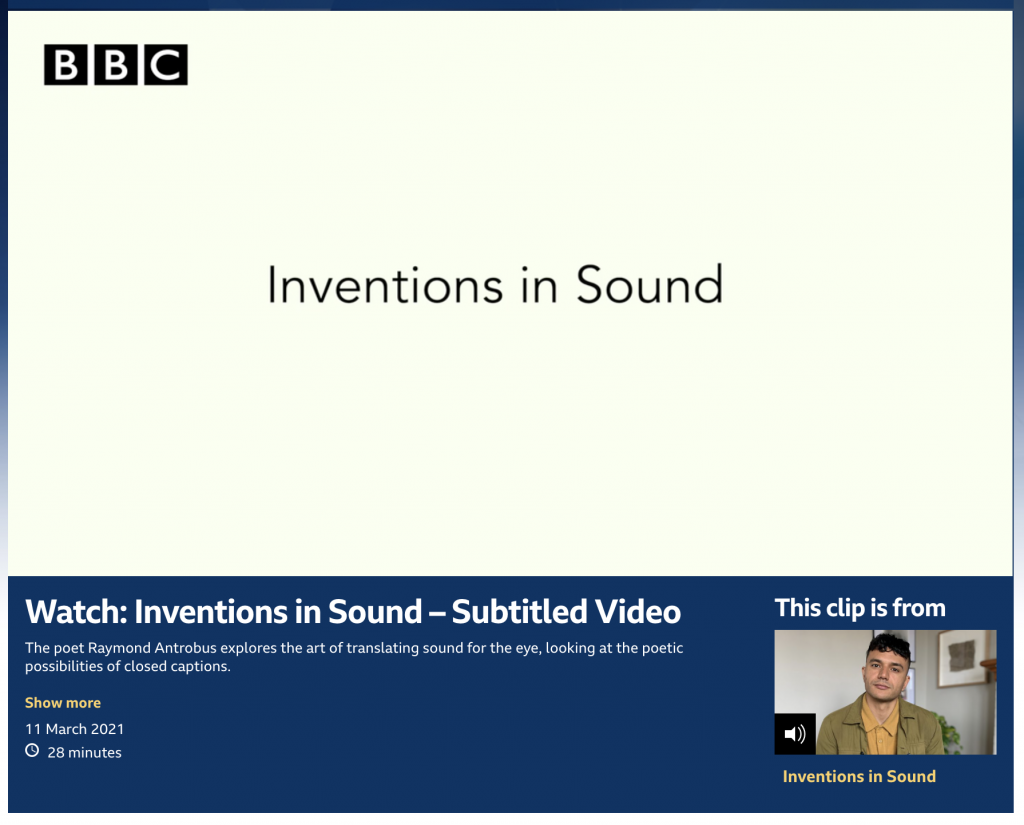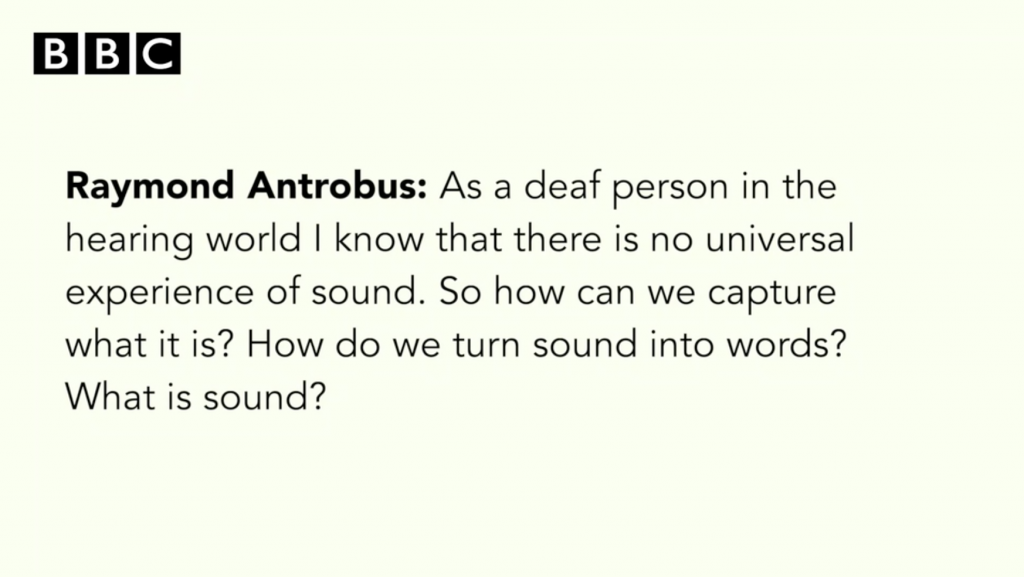
I was recently told about this program by a friend as they suggested it might be relevant to my practice. As it sounded super interesting to me, I was worried that it might just be a radio recording without subtitles. But then I was happy to find that there was a subtitled video for people like me – D/deaf people and hard of hearing. My relationship to radio has been pretty much non-existent, the only time I would hear it is when the car didn’t have any interesting music to play, my mom would always turn it on for background sound.
In this 28 min-long video, the Deaf poet Raymond Antrobus talks about his experience with radio, subtitles on TV, and translating sound within the hearing world. Words on the video are constantly flickering, as though we are watching on old static TV. Simultaneously, words are spoken in a flat monotone with interviews from artists and writers in their interpreter’s voices.

Throughout the video, commentaries are shown from Deaf artist (Christine Sun Kim) and Deaf poet (Meg Day), filmmaker (Lindsey Dryden), and caption maker (Calum Davidson), discussing what closed captions mean to them. I found this video really great as it really resonated with my experience and brought back my memories of constantly trying to find something on TV that provided subtitles. In particular, there was a reference by Lindsey Dryden to the film Dawn of the Deaf by Rob Savage. The film makes clever use of subtitles by partially showing them during a scene of a couple fighting using BSL, intentionally not showing the audience the full context of the argument. The mentioned short film can be found on Rob Savage’s website (the video is subtitled).
BBC Radio 4’s “Invention in Sound” can be found on the BBC website- the transcript is also available for download as well.
-Subtitles can easily change the context of video being shown.
-Subtitles can either tell us so much and so little.
-Size and placement of subtitles can be important as they can either hide or reveal what is happening on screen.
-How can the subtitles translate sound?
In my research posts, I would like to include questions, bullet-pointed lines of thinking, comments, and references. Please let me know if you have any questions!
During this week I am hoping to explore more into the unique language of subtitles and begin searching through film archives for more references. I wanted to ask everyone – what does sound mean to you? What is your experience with subtitles?